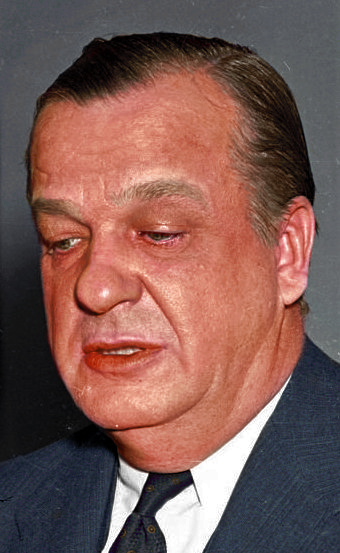Youngstown Vindicator (July 6, 1945)

Eliot: U.S. has key interest in British vote
Americans should hope election is decisive one way or another
By Maj. George Fielding Eliot
It is now almost commonplace to say that this war is a total and global war. We read these words and pass them by as accepted facts. But they have a meaning not only for present necessities but for future politics – both military and political.
Hereafter the policymakers of every great power must think and plan in global terms. time was when the Monroe Doctrine was a sufficient basis for American security; it is so no longer. Defense cannot be hemispheric, as two global wars have demonstrated to us.
It is within the framework of the global strategy which must guide our future policy that we must consider the demonstrated fact that the United Sates and British Commonwealth form a strategic unit of worldwide proportions. That Canada’s security is indistinguishable from our own, all Americans are ready to admit. But we must look beyond the hemisphere; we must realize that if we are to play an active part in world affairs, we must be prepared to use our power to support our policy.
Works both ways
It can be said with truth that without our help. Britain could not have emerged victorious from this war. It can also be said with truth that without British help we should have four ourselves isolated, struggling alone against a world in the grip of German and Japanese militarism.
This is not the first time that I have pointed out the significance of the great success of the combined chiefs of staff. As an instrument of military command, it was not perfect, but it worked, and worked well, because it fitted the strategic facts with which it had to deal – because the power of America and the British nations is so arranged and distributed that it does form a strategic unit and can be best used if it is so considered and directed.
It is against this background and especially with the development of Anglo-American relations within the future world organization in mind, that Americans should consider the British election.
I do not propose to make any prophecies as to its outcome, in view of the numerous factors of uncertainty. Few British observers are willing to hazard anything more than a guess, and it would be the height of presumption for an American writer to do so.
Need for working majority
But we Americans do have a very definite interest in the result of the election, insofar as it affects the policies of a nation which is very close to us in many ways, and with which we must cooperate closely in the future, for our own good and for the good of the world community.
On one point, at least, we can be definite. We should hope that the result of the British election is decisive, one way or the other; that whichever party assumes the responsibilities of government has a working majority in the House of Commons. To have a condition in which the shift of a few votes might overturn the cabinet at any moment would be the least desirable result from the American point of view.
The British people made an indispensable contribution to the winning of the war; their contribution to making and preserving of the peace will likewise be indispensable. Both for strategic and for political reasons, we have a particular interest in their future. It is to our best interests as well as theirs that in the councils of the world, they shall speak with no uncertain voice.